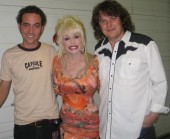At the mouth of the open sea, there are three ships on the horizon—one of them is on fire. Black plumes of smoke rise from its charring masts like a mountain’s shadow across the dawn. Perhaps those on board are tossing their lean prayers to the wind like holy matchsticks before thrusting their bodies overboard into the furiously silent ocean. Perhaps several hundred miles away a girl brushes a lock of hair from her eyes as she regards the indolent waters. Perhaps she turns, slowly making her way back to a house where the windows are always broken, away from a blackening horizon, towards the hurt of a dawn through a curtain.
These are The Early Widows.
Justin Rutledge returns with The Early Widows, a stoic collection of songs that rehabilitate the heart and illuminate the dark. Produced with intense fragility by Hawksley Workman, Rutledge’s fourth album is an arrestingly moving and lyrically meticulous piece of art penned by one of the most progressive songwriters at work today. Shouldering an electric guitar instead of his trademark acoustic, Rutledge infuses the new material with a newfound conviction and drive. The Early Widows also includes songs co-written with literary giant Michael Ondaatje, and award-winning songwriter Darrell Scott from Nashville.
Each song is like an undisturbed room in which a wounded echo reclines. ‘Be A Man’ is a mantra sung by a mirthless poet at an AA meeting; the rallying drum cry which begins ‘The Heart of A River’ calls for metropolitan migration; the weathered, blustery scrub of ‘Snowmen’ responds with a longing for spiritual hibernation, with a refrain that escapes the shadows of condo towers. Like the birth of a dawn through a curtain, The Early Widows is a study in light and shadow, with words that move like a pilgrimage towards one’s ear. The Early Widows was recorded live utilizing two drummers, Gary Craig and Blake Manning, with Bazil Donovan (Blue Rodeo) on bass, Burke Carroll on pedal steel, David Baxter on electric guitar, and Jesse Zubot on violins. In addition to this stunning ensemble of musicians, the album features the soaring and explosive voices of gospel choir, The Faith Choral.
Signed to Six Shooter Records, Justin Rutledge’s albums garner impressive amounts of critical acclaim. Between his debut, No Never Alone (2005), his sophomore release, The Devil On A Bench In Stanley Park (2006) and third album, Man Descending (2008), Rutledge has earned a Juno nomination, a Galaxy Rising Star award, countless year-end critics’ picks, the title of Toronto’s Best Local Songwriter (NOW Magazine), a spot on the 2008 Polaris Prize Long List and a Canadian Folk Music Award nomination. Justin has shared the stage with artists such as Blue Rodeo, Dolly Parton, Martha Wainwright and Great Lake Swimmers.
QUOTES
“Rutledge's sound has improved and evolved on each release. His third album is no exception. Its subtle and understated arrangements are some of the most beautiful he's written. This is his best album yet. CCCC.” -- Chartattack
“For anyone following the folk/roots scene in Toronto, the serene work of Justin Rutledge is no secret, but it’s easy to forget just how engaging and talented this gentle singer/songwriter is.infectious country folk hooks and lush harmonies. NNNN.” -- Now Magazine
“.sparse, smooth-edged production.Rutledge’s contemplative, low-key voice on “Alberta Breeze” and “A Penny for the Band” ensures that this is a fine record for making Sunday mornings hurt a little less.” -- eye weekly
“Rutledge approaches the words as though they are poems, refusing to highlight their meanings. Instead, the songs demand that listeners find those lines that stand out, turning them over and investigating the nooks and crannies around them until they begin to take on a larger, grander shape.” -- Vue Weekly
